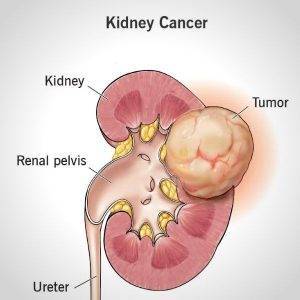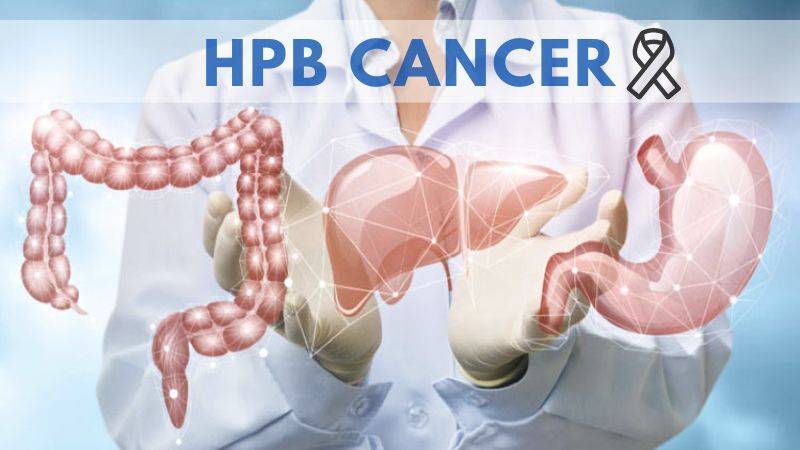“Catching Kidney Cancer Early: The Key to Stopping Its Spread”
What is Kidney Cancer?
Kidney cancer affects the kidneys, two bean-shaped organs located in the abdomen. It is one of the most common types of cancer in adults and can be very serious and life-threatening.  However, kidney cancer is treatable. With early detection and proper treatment, many people with kidney cancer can go on to live long and healthy lives.
However, kidney cancer is treatable. With early detection and proper treatment, many people with kidney cancer can go on to live long and healthy lives.
Common Symptoms
It is not always easy to immediately identify kidney cancer symptoms. Some of the most common symptoms of kidney cancer include:
- Blood in the urine
- Swelling in the lower back or abdomen
- Difficulty urinating
- Nausea and vomiting
- Fever Chills
- Weakness Pain in the back, side, or abdomen
- Pain in the ribs
- Coughing up blood
- Anemia
- Night sweats
- Swelling in the legs
- Weight loss
- Loss of appetite
- Pain in the side
- Recurrent fevers
As the symptoms worsen, the risk of kidney cancer increases. If you experience any of these symptoms, don’t hesitate to seek medical attention.
Stages of Kidney Cancer: How Fast Does It Spread?
Knowing the stages of kidney cancer and how quickly it can spread can help you take the necessary steps to get the treatment you need.
Stage 1: In this stage, the cancer is confined to the kidney and has not spread to other organs. This is the earliest stage of kidney cancer and is the most treatable.
Stage 2: Cancer has spread to nearby lymph nodes or tissues, but not organs.
Stage 3: Cancer has spread to other organs, such as the lungs or liver.
Stage 4: Cancer has spread to distant organs or tissues.
The speed at which kidney cancer spreads depends on the stage of cancer stage and cancer. In general, kidney cancer tends to spread slowly, but it can spread quickly in some cases. It is highly individualized. However, according to the National Cancer Institute, the average time from when a person first notices symptoms to when they develop the cancer is 5-7 years.
Talk to your doctor about your risk factors and the best course of treatment for your specific situation.
Risk Factors for Rapidly Spreading Kidney Cancer
The most common risk factor for rapidly spreading kidney cancer is age. People over the age of 50 are more likely to develop kidney cancer than younger individuals. Additionally, men are more likely to develop kidney cancer than women.
Other risk factors for rapidly spreading kidney cancer include smoking, obesity, high blood pressure, and a family history of kidney cancer. People who have had long-term dialysis treatments are also at an increased risk.
Take steps to reduce your risk, such as quitting smoking, maintaining a healthy weight, controlling your blood pressure, and getting regular check-ups
How Can Early Detection Help Slow the Spread of Kidney Cancer?
Early detection of kidney cancer can be a powerful tool in slowing the spread of the disease. By catching cancer in its early stages, treatment can be more effective and the chances of successful recovery are much higher.
Early detection help to reduce the risk of cancer spreading to other parts of the body. By catching cancer in its early stages, it can be treated before it has a chance to spread
It can be done through regular check-ups and screenings. Be aware of any changes in your body and report any unusual symptoms to your doctor.
Treatment Options for Advanced Kidney Cancer
 When it comes to advanced kidney cancer, there is no one-size-fits-all treatment plan. However, there are a variety of treatment options available to those who have been diagnosed with this condition.
When it comes to advanced kidney cancer, there is no one-size-fits-all treatment plan. However, there are a variety of treatment options available to those who have been diagnosed with this condition.
Surgery is often the first line of treatment for advanced kidney cancer. Depending on the size and location of the tumor, partial or full nephrectomy may be recommended. Only the tumor and a small portion of the kidney are removed during a partial nephrectomyDuring a full nephrectomy, the entire kidney is removed.
In addition to surgery, radiation therapy may be used to shrink the tumor and reduce symptoms. This type of treatment uses high-energy beams to target and destroy cancer cells.
Chemotherapy is another option for treating advanced kidney cancer. This type of treatment uses drugs to kill cancer cells. It can be used alone or in combination with other treatments.
Targeted therapy is a newer type of treatment that uses drugs to target specific molecules in cancer cells. This type of treatment can be used alone or in combination with other treatments.
Immunotherapy is another option for treating advanced kidney cancer. This type of treatment uses drugs to boost the body’s natural immune system to fight cancer cells.
Finally, clinical trials are another option for those with advanced kidney cancer. Clinical trials are research studies that test new treatments and medications. Participating in a clinical trial can give you access to treatments that are not yet available to the general public.
Speak to your doctor about the best treatment plan for you and don’t be afraid to ask questions. You can fight advanced kidney cancer and live a long and healthy life with the right treatment plan.





